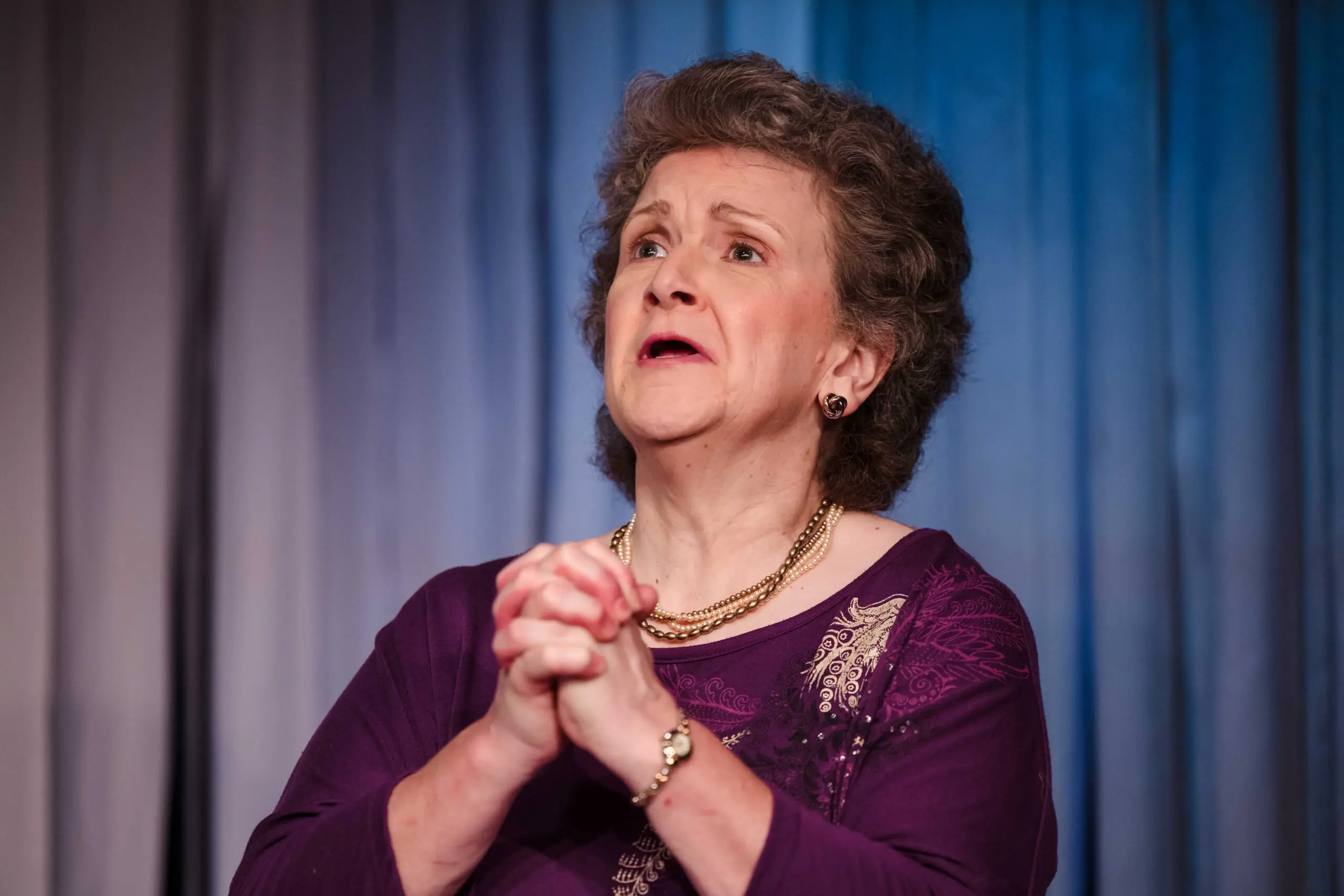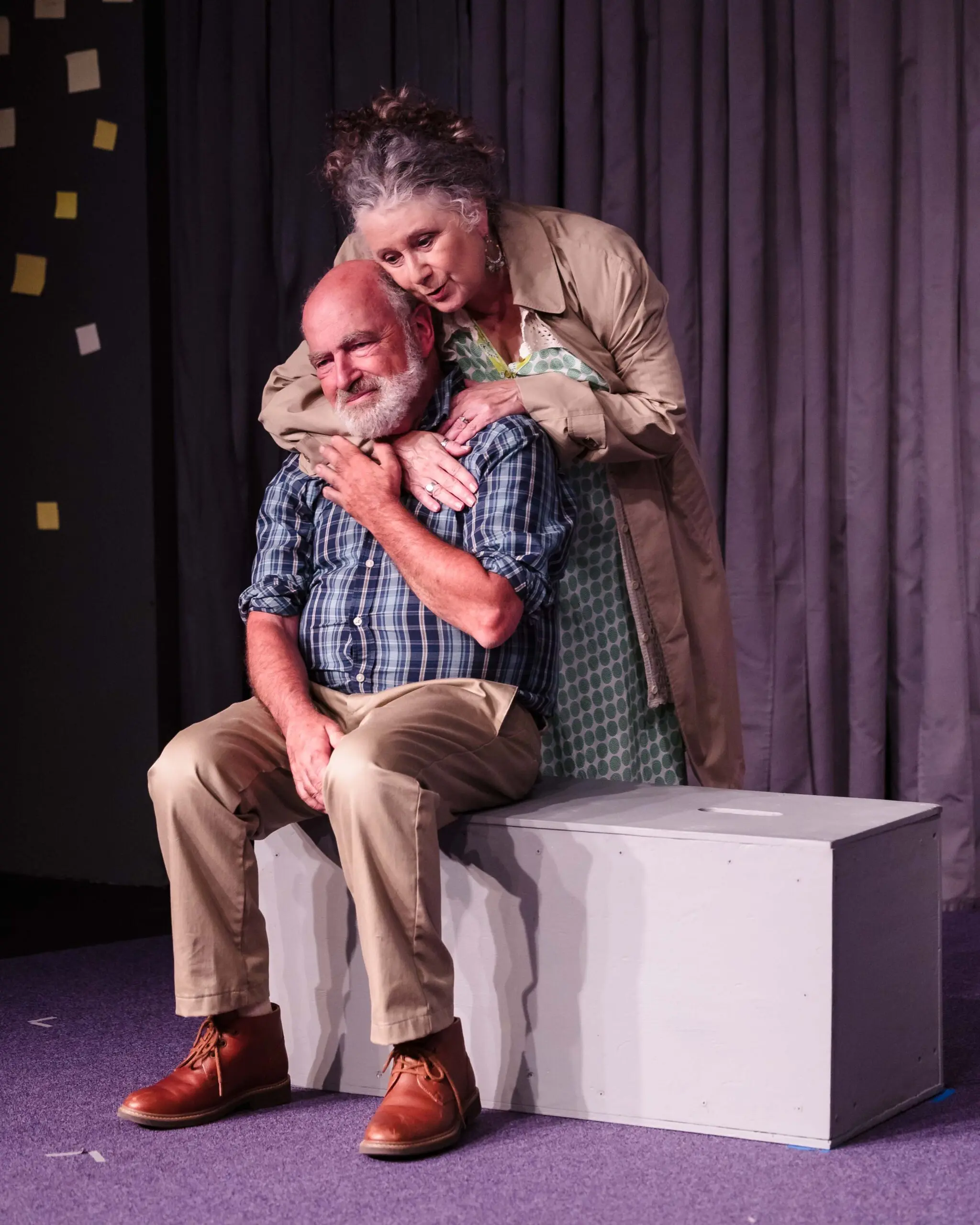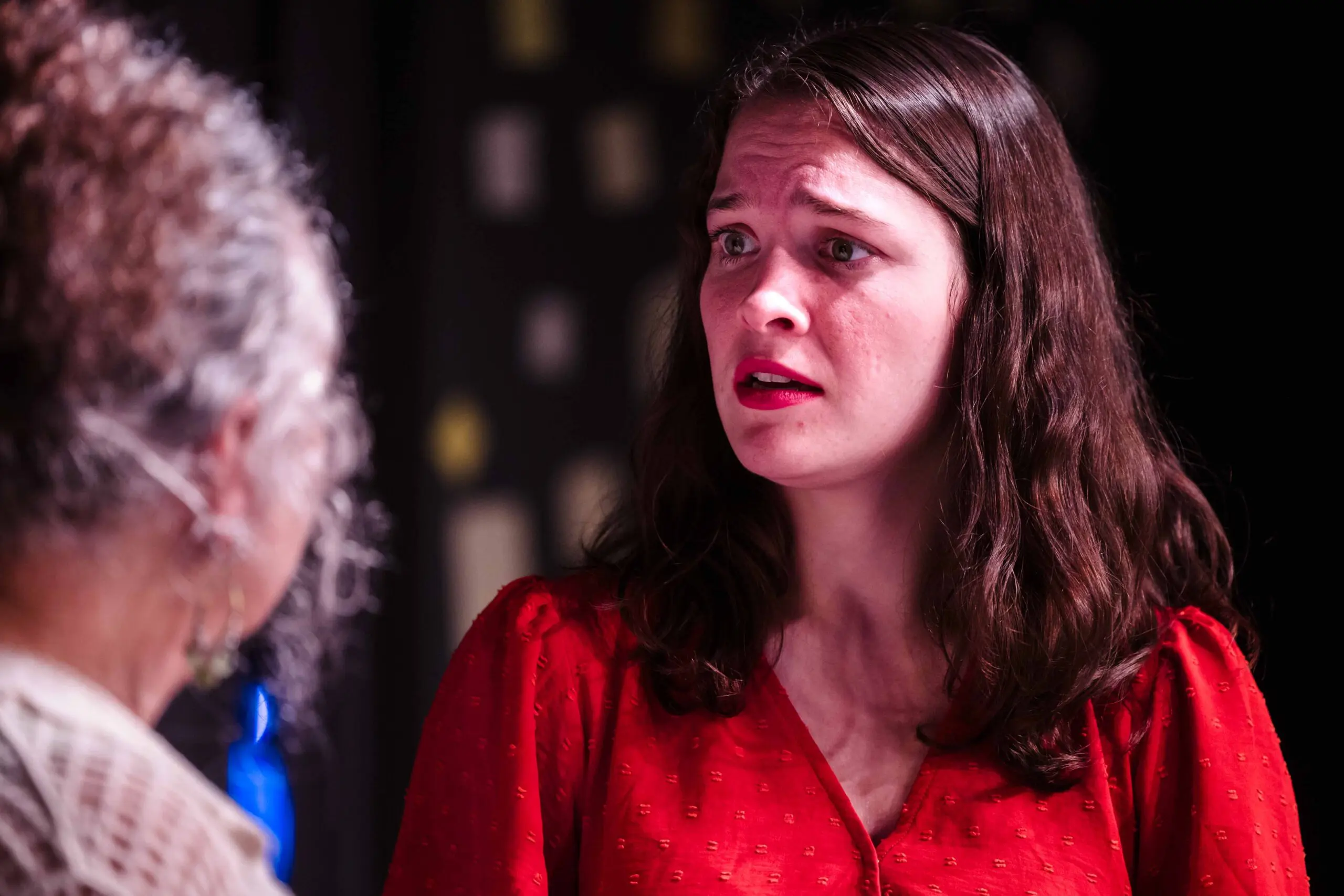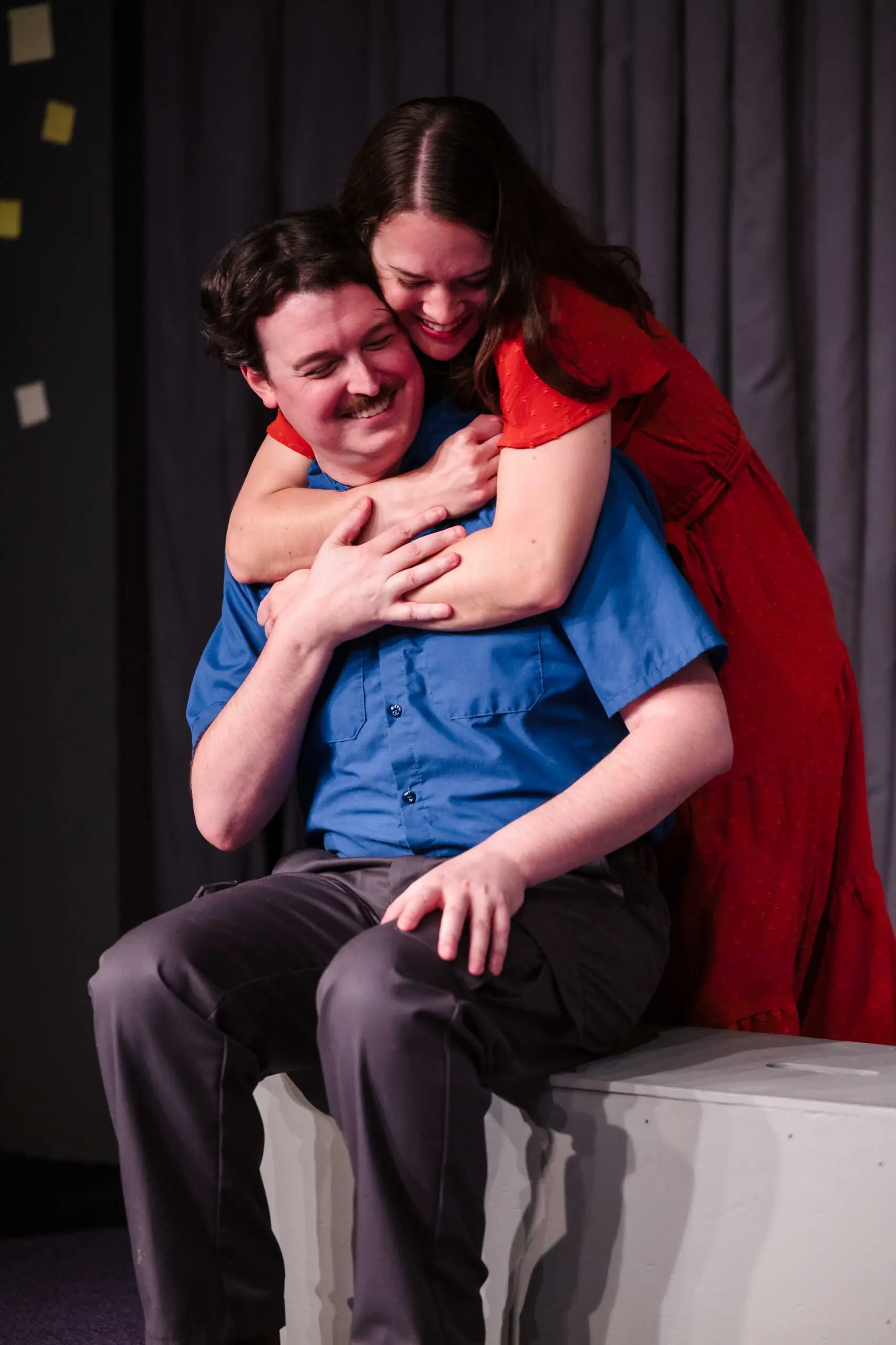Maggie May – A Musical Comfort and a Memorable Night of Theater
By Staff on September 6, 2024
Maggie May – A Musical Comfort and a Memorable Night of Theater – by Joanna Palladino.
Maggie May by Frances Poet is a contemporary play about an ordinary English family, balancing the challenges of daily life while facing the impact of Alzheimer’s. The play was written in collaboration with people living with different types of dementia and their realities influenced the script, technical design, costumes, and music.
The play centers around the relationship of Maggie and Gordon, who first met in 1971 and have been dancing to the sounds of Johnny Nash, Marvin Gaye, and Jackson 5 ever since. Now in their sixties, and still very much in love, they’ve been singing together and finishing each other’s songs throughout their marriage. Maggie’s illness is taking a stronger hold, and some days the songs are all she can remember. On her foggiest days, the music is a comfort and the only stronghold she has left to the memories of her life.
Directed beautifully and respectfully by Chris Foster, Maggie May uses comedic timing and honest humanity to help the audience explore the heartbreak of Alzheimer’s in a realistic, yet affirmative way. The plot of Maggie May sounds like a dismal night of theater. But it’s not! You end up leaving the theater with the realization that despite life’s challenges and the certainty of death, life itself can be joyous and the little things, a Harry Potter book, trivia night with friends, a well cooked ham, and a memorable song, make it all worth living.
The play has a small ensemble cast of five. Robin Leary as Jo, Maggie’s close friend, is a delight and gets to deliver a number of hilarious jokes throughout the play. Ben Amey plays Michael, Maggie and Gordon’s son, who struggles with accepting his mother’s diagnosis. Ashley Schuliger is Claire, Michael’s girlfriend, and delivers a genuine performance in a few touching scenes with Maggie. Gary Maggio portrays Gordon, Maggie’s husband with such wit, kindness, sincerity, and compassion. His scenes with his wife Maggie (played by Melissa Putterman Hoffmann) are pure magic. Melissa Putterman Hoffmann’s Maggie is humanity at its best. Her Maggie is relatable, authentic, vibrant, honest – and her performance is delivered with such care and introspection.
The crew for Maggie May should also be recognized. The stage managing, set construction (a collaboration of too many individuals to name here), lighting design, set design, projections, props, and technical design all add to create a well delivered production. The lighting in the final scene by David Caso is simply a marvel. Of special note is the sound design by Joshua Horowitz. With the name of the play being Maggie May, you would think that the entire sound design would have been Rod Stewart songs – but Joshua Horowitz made different choices.
The sounds in Maggie May have been curated with the intent of capturing the ambience of Maggie’s mind throughout the production. Horowitz used another sound selection from a game, something he has done in other productions. He selected Yume Nikki, with music by Kikiyama, that features visual storytelling only, as one follows the main character as she traverses through a dream world, where each part of the world has its own short, atonal loop for the background. Two selections from this soundtrack, Puddle World and Ghost World, worked well to depict Maggie connecting with her brain. A couple selections from Nier:Automata’s soundtrack, Broken World and The Color of Depression, composed by Keiichi Okabe and MONACA, work wonders to dive further into the fears brought about by the Alzheimer’s that Maggie deals with in her day to day life. Nier:Automata is a game that traverses into high complexity of themes, but one of them notably is existential horror. Underscoring some of Maggie’s train of thought and in between the moments of family and friends seen in the play, is the work of Otto Taimela. Particularly, Microtonal Ghost Piano Song, Dawn Dance, When the Light in Us Shines Through, Brothers, Storm Song, and When I Think of Us I Think of the Rivers, from his album Inner Beauty were used to capture an ethereal feel and to provide microtonal music to continue to carry an atypical feeling throughout this production.
Horowitz chose to reference the love of Maggie and Gordon through his preshow and intermission selections and his playlist included: A Horse with No Name – America; Ain’t No Sunshine – Bill Withers; Boogie Wonderland – Earth, Wind & Fire; Don’t Bring Me Down – Electric Light Orchestra; Don’t Fear the Reaper – Blue Oyster Cult; Eye in the Sky – The Alan Parsons Project; Have You Ever Seen The Rain – Creedence Clearwater Revival; I Can See Clearly Now – Johnny Cash; It’s Too Late – Carole King; Landslide – Fleetwood Mac; Lovely Day – Bill Withers; Maggie May – Rod Stewart; Mr. Blue Sky – Electric Light Orchestra; Oh, Pretty Woman – Roy Orbison; Shining Star – Earth, Wind & Fire; and Solsbury Hill- Peter Gabriel. The real treat came at the end when Horowitz selected Blue Boy by Rosemary and Garlic to close the show. Rosemary and Garlic is an indiefolk duo from Amsterdam with an ethereal vintage sound. Blue Boy is a classical focused piece that tied everything together as the actors took their bow. What resonated was not only the beauty of the song, but the actual lyrics of the work is fitting for Maggie May:
It′s in the small things
In the colours
And the light
As I’m standing
At the blue lake
Eyes to the sky
I′m recalling
The few friends that I’ve made
I would embrace them with my strange arms now
While the wind, she cries
So blue boy
Blue boy
All the people
And everyone I’ve met
All their colours are fading
Their names I will forget
So blue boy
Blue boy
And I′m sinking in the years now
I let the years go by
And I′m sinking in the years now
I let the years go by
Maggie May, a theatrical collaboration between, Albany Civic Theater and Harbinger Theatre, is a play that delivers hope. Maggie May reminds us that simple moments create lasting memories, and these memories should be shared with those we love. Maggie May reminds us about the lasting power of music and its impact on our past and present. Maggie May reminds us that even our darkest human experiences have light.
Maggie May is at Albany Civic Theater located at 235 Second Avenue in Albany with performance dates of September 6, 7, 8, 13, 14, 15, 20, 21, 22, 2024. Fri & Sat 7:30, Sun 3:00
Tickets can be purchased here: https://www.tickettailor.com/events/albanycivictheaterinc/1322144










 RadioRadioX
RadioRadioX